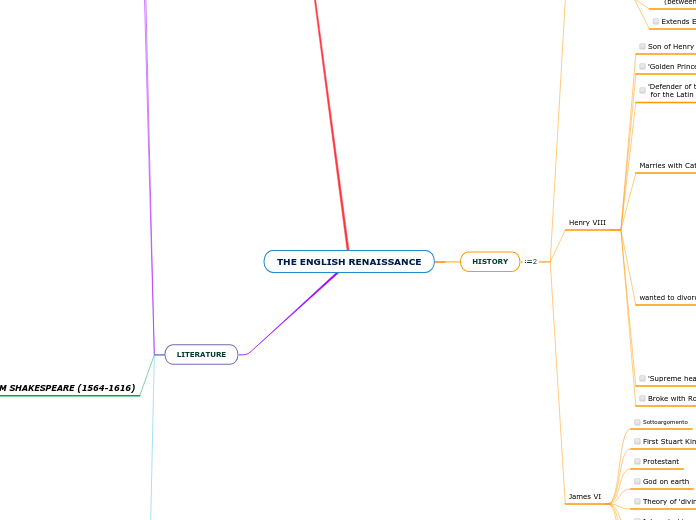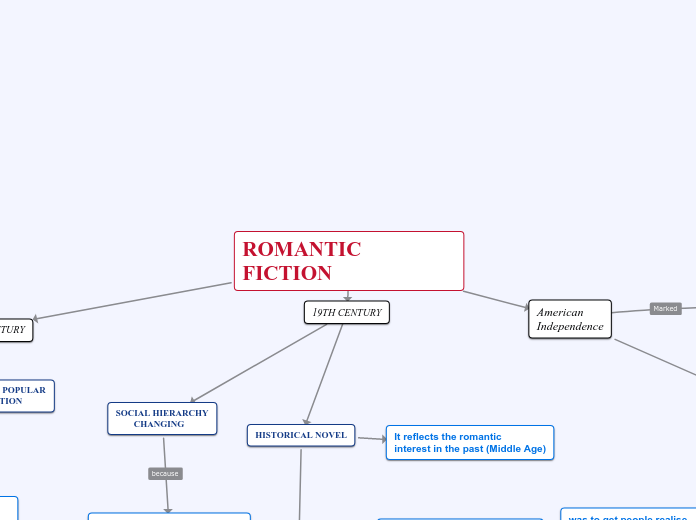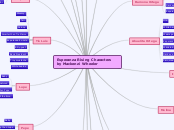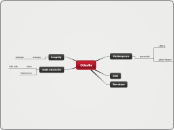THE ENGLISH RENAISSANCE
LITERATURE
STRUCTURE OF THEATRES
Plays were acted in a daylight
There were no female actresses
There was a trap door, used for disappearances and also for burials
The gallery above the stage could be used by the audience or by the musicians
The stage had no curtain
They were round or octagonal
They were built during the 16th century
WILLIAM SHAKESPEARE (1564-1616)
His style
Human emotions
Psicology
Depth and thought
Maturity
His works
Tragedies
Macbeth
The reversal of values, introduced by three witches
Regicide, which is an act against nature
Lady Macbeth sees Duncan's blood on her hands, she finally goes mad and kills herself. Malcolm, Duncan's son, organised an army in England to kill Macbeth. Macbeth is terrified when he hears the english army is using branches from the trees to protect themselves. The forest really is coming to his castle. He is killed in the battle and Malcolm became the King of Scotland
The three witches also predict that Macbeth will be safe as long as Birnam Wood does not move towards him and that none of woman borne shall harm him
Macbeth does not feel safe, so he kills his friends, Banquo and his son, but Fleance escapes and Banquo's ghost begins to haunt Macbeth
Duncan is murdered and the blame is put on the king's servants who were sleeping outside the room. The king's sons leave Macbeth's castle, fearing for their lives. Macbeth is now on the throne, but his friend suspect him
First Act
Scotland is at war and Macbeth is the hero of the battle. A day he and his friend meet three witches. They tell him that he will be given more money, land and power and also that Macbeth will be the 'future king'. After that he receives a message from Duncan, king of Scotland, who wants to reward Macbeth for his victory and giving him more money, land and power
Romeo and Juliet
Love
Time
The reflection upon language made by Juliet, who shows a trendency to realism in her use of language
The lack of knowledge which necessarily derives from bad communication
The stories take place in Verona, where two families, the Montagues and the Capulets, are locked in a violent feud
Fifth Act
In the last scene Romeo poison himself after seeing Juliet apparently dead in the tomb, while Juliet, waking from her trance, sees Romeo dead and stabs herself with his dagger. Romeo and Juliet will never know the truth about their death
Fourth Act
It is the preparatory act to the final tragedy. Juliet takes a drug given to her by Friar Laurance. This potion makes her seem dead. The friar sends a messager to Mantua, but before he arrives, Romeo is told that Juliet is dead and decides to come back to Verona
Third Act
It can be divided in two parts: that of public events, full of action and movement, and the part devoted to private events. It ends with Romeo and Juliet's wedding night at the Capulet's house
Second Act
It concentrates on the development of the relationship between Romeo and Juliet. It ends with the secret wedding of the two lovers in the chapel by the friendly priest, Friar Laurence
Firts Act
It is composed of a series of dialogues about the courtly conception of love, which was linked to melancholy. It ends with the scene of the masque and the meeting of Romeo and Juliet
Historical dramas
They were closely based on serious records like the Tudor's chronicles
Comedies
They end in multiple marriages, and all seem to have in common the preoccupation with the journey of the young women
In 1559 his company built the Globe Theatre, where most of his plays were performed
He married Anne Hathaway when he was 18
They have a daughter
He came at king Edward school
He didn't go to university, in fact he left school at 15
He was
A playwright
A clever and a successfull man of business
A 'genius'
Unusal description of woman
Real woman, with defects (she is given dark hair and eyes and an unattractive face)
THE SONNET
Themes
Love and faith, beauty and art, time
Turning point
At the end of the eighth line and the ninth (introduced by words like; and, if, so, but, then, when)
Rhyme scheme:
I Quatrain: ABAB
II Quatrain: CDCD
III Quatrain: EFEF
IV Quatrain: GG
Division in 4 sections
A couplet that solves or summarised the problem
3 quatrains that present a problem or situation
14 lines of iambic pentameter
Introduced by Tomas Wyatt
SCIENCE
Hierarchical system linked the different orders to life
The angels, linked to man
Animal class
Vegetative class
Inanimate class (elements, liquids, metals
Galileo Galilei (1564-1642)
established the scientific method
proved that the earth turns around the sun
Theories of Copernicus (1473-1543)
The sun was at the centre, with the earth and the other planets moving aound it
Ptolemy's view of universe (2nd century AD)
The sun and the planets revolved around Earth
HISTORY
James VI
Puritans disapproved of both the rites and the bishops of the Church of England
Pilgrim Father applied for a government patent to colonise New England
New traslation of the Bible
Interested in supernatural Daemonologie
Theory of 'divine right of king'
God on earth
Protestant
First Stuart King of England
Henry VIII
Broke with Rome
'Supreme head on earth of Church of England'
wanted to divorce and remarry with Anne Boleyn
Elisabeth I
1603, Tudor line died out
Spanish invade England
English defeat the Spanish Armada
Promoted exploration ( sea captain Sir Francis Drake)
Married to her people ('Virgin Queen')
Queen of a divided nation (anti-Catholic and anti-Spanish)
Daughter of Henry VIII and Anne Boleyn
Marries with Catherine of Aragon
Mary I
Burned Protestants (her nickname is 'Bloody Mary')
Marriage to Philip of Spain
Established a Catholic reign by being the agent
of a Counter-Reformation
Rejected by her father and strict mother
Daughter of Henry VIII and Catherine of Aragon
'Defender of the Faith'
for the Latin treatise about sacraments
'Golden Prince' for good looking
Son of Henry VII
Henry VII
Extends England's military power
Marriage as political weapon
(between his son and Catherine of Aragon)
Treaty with France and Netherland
1st Tudor
Sottoargomento









